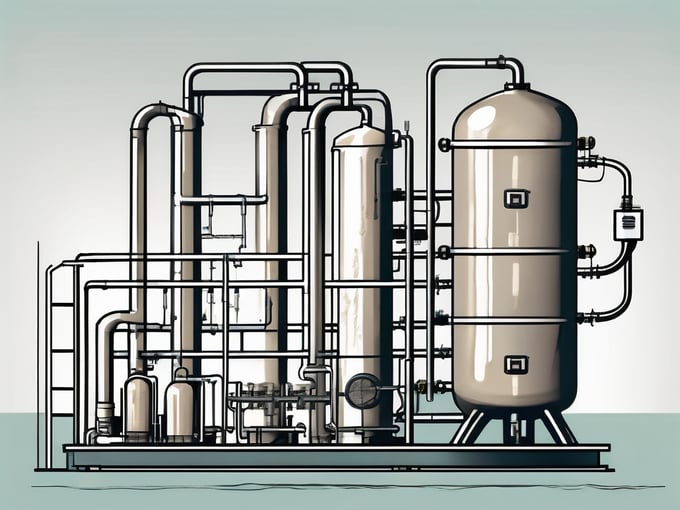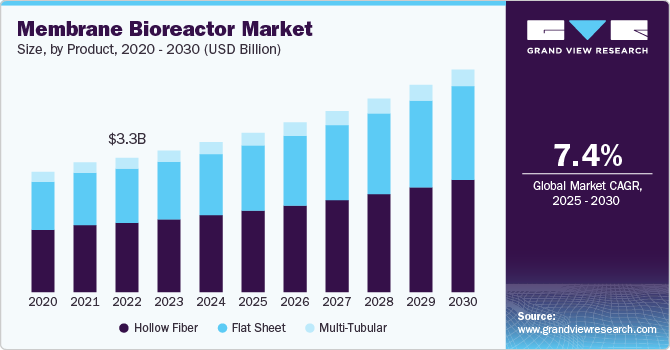How Membrane Bioreactor Technology Is Revolutionizing Wastewater Treatment
How Membrane Bioreactor Technology Is Revolutionizing Wastewater Treatment
Blog Article
The Benefits of Membrane Bioreactors in Lasting Wastewater Administration
Membrane layer bioreactors (MBRs) represent a crucial advancement in sustainable wastewater management, effectively combining biological therapy with sophisticated membrane layer purification modern technology. As the need for sustainable options heightens, checking out the complex advantages of MBRs may reveal unforeseen effects for the future of wastewater treatment systems.
Overview of Membrane Bioreactors
Membrane layer bioreactors (MBRs) stand for a considerable advancement in wastewater treatment innovation, incorporating organic destruction with membrane filtering to improve the efficiency of the therapy process. This ingenious system combines the benefits of traditional turned on sludge procedures with membrane technology, enabling improved solid-liquid splitting up. MBRs utilize semi-permeable membranes to separate treated water from biomass, resulting in premium effluent that can be recycled or securely released right into the atmosphere.
The operational design of MBRs generally involves a bioreactor where microbes damage down natural issue, adhered to by a membrane device that filters the combined alcohol. This setup not only reduces the footprint of the treatment center but also permits greater biomass focus and minimized hydraulic retention times. MBRs are qualified of dealing with a broader variety of pollutants, consisting of pathogens and nutrients, making them suitable for different applications, from metropolitan wastewater therapy to commercial effluent processing.
The assimilation of MBRs right into wastewater administration systems is a measure of an expanding trend towards effective and lasting practices in environmental engineering. Their capability to create premium effluent while reducing area requirements placements MBR modern technology as an essential player in modern-day wastewater treatment services.
Improved Effluent Quality

The membrane layer purification procedure acts as a physical obstacle, enabling the retention of bacteria and particle matter, which adds to a clearer and cleaner effluent (Membrane Bioreactor). MBRs run at greater biomass concentrations than conventional turned on sludge systems, promoting a lot more effective biodegradation of contaminants. This leads to a reduction in biochemical oxygen demand (FIGURE) and complete suspended solids (TSS) degrees in the last effluent
In addition, MBRs demonstrate superb efficiency in dealing with challenging wastewater compositions, such as commercial effluents and wastewater with high nutrient tons. As an outcome, the effluent created is frequently of better, permitting for even more adaptable disposal options and lowered environmental effect. Ultimately, the boosted effluent quality attained with MBR modern technology emphasizes its crucial function beforehand lasting wastewater monitoring techniques.
Water Reuse Opportunities
The high-grade effluent produced by membrane bioreactors (MBRs) opens up significant opportunities for water reuse in different applications. MBRs effectively get rid of pollutants, including pathogens, put on hold solids, and raw material, resulting in treated water that satisfies or surpasses governing requirements for reuse. This top quality permits the execution of water reusing efforts across varied markets.
One famous application remains in farming, where treated wastewater can be made use of for watering, advertising lasting farming techniques while preserving try this freshwater sources. In addition, MBR-treated effluent can be used for commercial processes such as air conditioning, cleaning, and as a process water resource, significantly reducing the need for safe and clean water in these operations.
In urban environments, MBRs help with using redeemed water for landscape irrigation, commode flushing, and other non-potable usages, adding to the total strength of water systems. Additionally, the combination of MBR why not try these out technology in decentralized systems help in handling local water needs, especially in water-scarce areas.
Lowered Ecological Influence
How can the adoption of membrane layer bioreactors (MBRs) contribute to a decreased ecological influence in wastewater management? MBRs significantly boost the treatment efficiency of wastewater while reducing ecological disturbances. Membrane Bioreactor.
Furthermore, MBRs run at reduced hydraulic retention times compared to conventional systems, resulting in smaller sized treatment plant impacts. This compact layout decreases land use, therefore maintaining natural habitats and biodiversity. The process additionally generates much less sludge than traditional techniques, reducing disposal obstacles and reducing greenhouse gas discharges connected with sludge administration.
Additionally, MBRs promote the healing of important sources, such as water and nutrients, adding to a round economy. By making it possible for water reuse for irrigation or industrial procedures, MBRs help ease freshwater scarcity, hence advertising sustainable water make use of methods. Inevitably, the fostering of MBR modern technology represents a substantial stride towards lessening the environmental effect of wastewater monitoring systems.
Financial Advantages of MBRs

Furthermore, MBRs promote the production of premium effluent, which can be recycled for various applications, such as farming watering and industrial processes - Membrane Bioreactor. This reuse capability can significantly reduce water procurement expenses, providing an economic incentive for markets dealing with strict water regulations
The small design of MBR systems also results Read Full Report in decreased land requirements, which is particularly valuable in metropolitan areas where realty is pricey. By lessening room, sectors and towns can minimize land purchase and maintenance expenses.
Moreover, MBRs commonly call for less frequent upkeep and have a longer lifespan than traditional systems, even more adding to cost savings. In recap, the economic advantages of MBRs-- varying from minimized operational costs to land savings and effluent reuse-- make them a compelling option for sustainable wastewater management, supplying both immediate and lasting financial benefits.
Conclusion
Additionally, MBRs add to decreased environmental influences through compact layouts and reduced sludge generation. Economic benefits even more enhance their viability, making MBRs an appealing remedy for attending to the challenges of wastewater treatment and promoting sustainable resource monitoring.
Membrane bioreactors (MBRs) represent a crucial innovation in lasting wastewater management, efficiently merging biological treatment with sophisticated membrane layer filtration innovation.Membrane layer bioreactors (MBRs) represent a substantial innovation in wastewater therapy technology, incorporating organic deterioration with membrane layer filtering to enhance the effectiveness of the treatment process.Attaining enhanced effluent high quality is one of the most substantial advantages of using membrane layer bioreactors (MBRs) in wastewater treatment.In addition, MBRs show exceptional efficiency in dealing with tough wastewater make-ups, such as industrial effluents and wastewater with high nutrient lots.Incorporating membrane bioreactors (MBRs) right into wastewater management not just decreases ecological effect but likewise provides considerable economic advantages.
Report this page